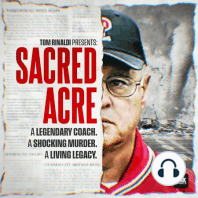5 min listen
S01 Episode 01: We Call Him Wesley
ratings:
Length:
32 minutes
Released:
Jul 18, 2022
Format:
Podcast episode
Description
To his family, he was simply “Wesley.” But to all in Major League Baseball, Lyman Wesley Bostock Jr. was a master with a bat. A career .311 hitter, greats of the game like George Brett and Rod Carew believed Bostock had the potential for 3,000 hits, and a possible Hall Of Fame career.
Long before signing a massive contract with the Angels, Lyman was born the son of a Negro Leagues player. Father and son had little contact in the boy’s childhood. Bostock would later say, “My father helped teach Willie [Mays] but never taught me.”
A star high school player in Los Angeles, Bostock almost never played college baseball. He arrived on campus during the tumult of the late 1960s, a period similar to the early 2020s. For Bostock, the fight for equality and social justice, was more important than baseball. “The cause” almost cost him his career.
Long before signing a massive contract with the Angels, Lyman was born the son of a Negro Leagues player. Father and son had little contact in the boy’s childhood. Bostock would later say, “My father helped teach Willie [Mays] but never taught me.”
A star high school player in Los Angeles, Bostock almost never played college baseball. He arrived on campus during the tumult of the late 1960s, a period similar to the early 2020s. For Bostock, the fight for equality and social justice, was more important than baseball. “The cause” almost cost him his career.
Released:
Jul 18, 2022
Format:
Podcast episode
Titles in the series (9)
Season 1 Preview: In the more than 150 year history of Major League Baseball, only one player has ever been murdered during a season. by Tom Rinaldi Presents: Wesley
